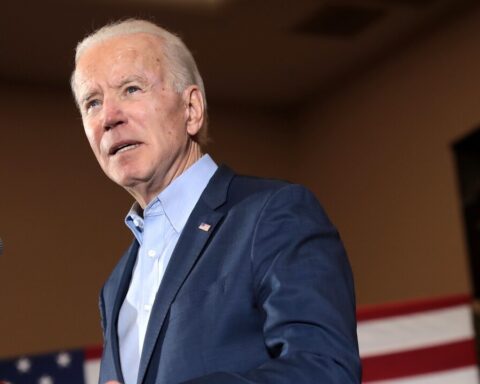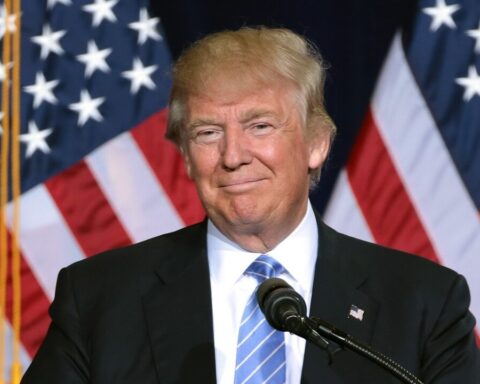In June 2020, elites from around the world gathered to announce the launch of a plan to “reset” the entire global economy, a proposal they ominously named the “Great Reset.”
Among the many world leaders and powerful institutions that pledged their support for the Great Reset at the June meeting were the International Monetary Fund, Prince Charles, the head of the United Nations, CEOs from major international corporations, and the World Economic Forum—one of the key ringleaders of the Great Reset.
“Every country, from the United States to China, must participate [in the Great Reset], and every industry, from oil and gas to tech, must be transformed,” wrote Klaus Schwab, the founder and executive chairman of the World Economic Forum, in an article published on WEF’s website. “In short, we need a ‘Great Reset’ of capitalism.”
The initial justification for the Great Reset was the COVID-19 pandemic, but from the start, supporters of the global economic overhaul repeatedly said that climate change was the long-term justification, the one that would allow a sustained, massive transformation of society. Doing nothing, they argued, would pose an “existential threat” to the human race—a completely ludicrous argument many on the left continuously make without a shred of solid scientific evidence to support the claim.
Among the most important figures in the Great Reset movement are gigantic financial institutions and/or their CEOs, including Bank of America and MasterCard.
Although many Great Reset supporters have called for dramatic expansions of government welfare programs, including job guarantees, government-provided health care, etc., the heart of the Great Reset is something called environmental, social, and governance (ESG) metrics.
ESG metrics offer public policy leaders, economists, investors, and banks an entirely new way of evaluating businesses. Instead of looking at how profitable a company is, how many employees it has, its business model, and other traditional metrics, ESG adds to those concerns a whole host of left-wing causes, including how “green” a company is, having the “right” ratio of minorities, whether a business is involved in politically disfavored industries (such gun manufacturing and sales), as well as other, similar considerations. Companies are then given a score or rating to determine how well they align with ESG goals.
Hundreds of the world’s largest corporations, including financial institutions, have already created ESG systems and reporting metrics within their companies, and investor groups worth trillions of dollars have pledged to prioritize these companies over those that refuse to participate.
ESG systems, sustainable investment, and forcing the world to adopt “green” energy sources are all essential elements of the Great Reset plan to transform the world. (I put “green” in quotes because there is ample evidence to show wind and solar energy are not even remotely environmentally friendly, as even left-wing documentarian Michael Moore now admits.)
Parts of the Great Reset are theoretical and have yet to be put into place, but some components of the plan have already been rolled out or are now being put into place. One of the most important is financial institutions’ commitment to mandate virtually all businesses in America adopt renewable energy.
In February 2021, Bank of America, citing its “longstanding support for the Paris Climate Agreement,” announced, “the company today outlined initial steps to achieve its goal of net zero greenhouse gas (GHG) emissions in its financing activities, operations and supply chain before 2050.”
Note that the “net zero greenhouse gas emissions” rule will be applied not only to Bank of America’s own operations and supply chain—meaning every company that does business with Bank of America—but also its “financing activities.”
Put more simply, if you want a loan from Bank of America in the future, you better toe the globalist line on climate change.
Of course, Bank of America isn’t the only bank with these policies. Wells Fargo CEO Charlie Scharf made a comparable announcement on March 8.
“Climate change is one of the most urgent environmental and social issues of our time,” Scharf said, “and Wells Fargo is committed to aligning our activities to support the goals of the Paris Agreement and to helping transition to a net-zero carbon economy.”
Citi, Goldman Sachs, Morgan Stanley, and JPMorgan Chase—which, together with Wells Fargo and Bank of America, make up the six largest banks in the United States—also made similar commitments.
And do not think for a moment that these requirements will only apply to businesses, either. Some financial institutions have already started to give ESG scores to individual investment accounts, as Glenn Beck has repeatedly noted, sending a clear signal that everyone will be required to adopt the Great Reset in the coming years.
If banks are allowed to collectively decide to stop financing any group of people they want, based not on financial concerns but ideological considerations, then banks and their Great Reset allies will have, in effect, near total control over society—especially if they begin to tie lending decisions to a vast ESG system.
Interestingly, in January 2021, the Trump-era Office of the Comptroller of the Currency issued a finalized Fair Access to Financial Services regulation that would have made it illegal for large banks to engage in the sort of discrimination I warned about above. But just one week after entering the White House, President Joe Biden “paused” the rule’s implementation, signaling his clear intention to eliminate the rule before it ever has a chance to be published in the Federal Register.
This shouldn’t come as a surprise to those of you who have been following the Great Reset closely. The Biden administration’s “climate czar,” John Kerry, as well as Biden himself, are supporters of the Great Reset.
The time has come for a massive populist revolt against the Great Reset, one that will hopefully have the same success as the grassroots movement against Common Core did under the Obama administration.
The fate of the free world may very well depend on it.
Justin Haskins (jhaskins@heartland.org) is the editorial director and a research fellow at The Heartland Institute.
PHOTO: Wells Fargo. Photo by Mike Mozart. Attribution 2.0 Generic (CC BY 2.0).
Justin Haskins is editor-in-chief of 1818 Magazine. Haskins is a widely published writer and political commentator, the director and founder of The Henry Dearborn Institute for Human Rights, and the editorial director and research fellow at The Heartland Institute, a national free-market think tank. Haskins was first contributor to Glenn Beck's "Arguing with Socialists," a New York Times best-selling book, and the author of "Socialism Is Evil," an Amazon bestseller. He writes columns for FoxNews.com, Newsweek, and The Hill, has appeared on television more than 100 times, including numerous appearances on "Tucker Carlson Tonight." His work has been featured by the New York Times, Washington Post, Wall Street Journal, National Review, New York Post, and the White House, among many other sources. Haskins was named one of the "Top 30 Republicans Under 30" by Newsmax, is a member of the Philadelphia Society, and holds two master's degrees from Regent University. Follow him on Twitter @JustinTHaskins.







